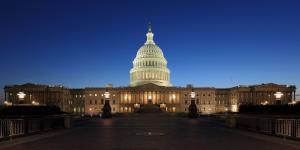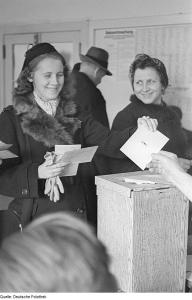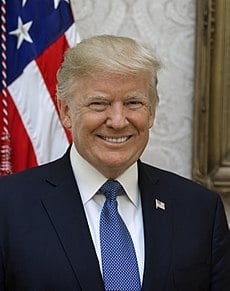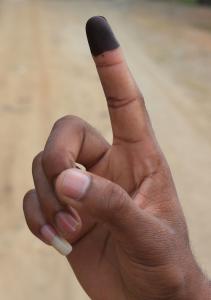 Since I have moved to Los Angeles, and have joined as an affiliate member Westwood United Methodist Church, I have over the past several months also joined a group of men within the church that meet over breakfast once a month. Our church has no official United Methodist Men’s group, so this collection of men serves like something of a substitute. We eat breakfast together, and then the co-sponsors of that day’s meal announce a topic for an open discussion. The group usually numbers between 15 and 20.
Since I have moved to Los Angeles, and have joined as an affiliate member Westwood United Methodist Church, I have over the past several months also joined a group of men within the church that meet over breakfast once a month. Our church has no official United Methodist Men’s group, so this collection of men serves like something of a substitute. We eat breakfast together, and then the co-sponsors of that day’s meal announce a topic for an open discussion. The group usually numbers between 15 and 20.
Our church has an unusual division of its worshipping community. Two different congregations meet at precisely the same time on Sunday mornings. The one I attend is the “traditional” service, complete with organ (a very fine instrument!), hymns, choir, prelude, postlude, a sermon from the pastor, the whole familiar enchilada. At the same time, another group meets in The Loft, an emerging service with new music, usually composed and sung by some of the musicians that participate, a more dialogic sermon, and close attention to issues of justice in the world. Participants in the Loft tend to be younger, though there are surely older members. Participants in the more traditional service tend to be older with a smattering of younger people. In our breakfast group we have members from both worshipping communities. There is a good mix of ages, though only one African-American comes regularly, leaving the rest of us a monochrome white.
The topic this morning was the mid-term elections, and the discussion was very wide-ranging. Since we all live in Southern California, nearly all of us are progressive both religiously and politically, though a few would perhaps call themselves moderate. Today, all were quite pleased that the Democrats had regained majority in the House of Representatives, and many expressed some sadness that the “blue wave” had not been more like a tsunami. We have an inordinate number of attorneys in the group—indeed, our church boasts some 75 members of the bar out of its about 500 congregants. In the breakfast gathering, perhaps one-third are attorneys. We also have some retirees, myself included, and they have in their working lives been scientists, bankers, among other professions, all of which required significant educational achievements. In short, we are a highly educated and well-traveled bunch.
The discussion focused rather quickly on what the election might mean for the future of the country. One of our newest members, who has just moved back to LA from Washington DC, having lived there for some years, suggested that he saw no real change due to the results of the election, due to at least two factors. First, many of the new congressional Democrats are deeply partisan, expressly anti-Trump, and ready to move the party to the left. Second, the election was awash in money, much of which was generated from big-money donors who expect results to their benefit from those they have backed. How can we expect full freedom of thought and action when a representative has ridden to victory on a wave of cash from various PACs who have significant special interests that they demand the legislator to address? He predicted further partisanship and an exacerbated political divide, leaving the needs of the country again unaddressed. “We are in for a very rocky next two years,” he predicted with some gloom.
I do not deny that the run up to the 2020 presidential race will have its ugly moments, not to mention its ugly half-hours, though I hope that at least a few of the myriad problems we face as a nation might be looked at with a modicum of bipartisanship. Surely, our crumbling infrastructure is something that presents a desperate need transcending donkeys and elephants? But rather than focus on policy alone, I was struck, and quite heartened, by the wonderful diversity that the winners of the elections showcase. It can be no bad thing, rather a thing to be shouted from the housetops, that over 100 women, for the first time in our history, will make up the membership of the House. Since that figure represents less than 25% percent of the body, it is not enough, but it is a vast improvement. In addition, two Muslim women will be seated for the first time. Will it not be grand indeed to watch as they place their hands on the Quran to be sworn in? And also for the first time two Native American women, elected at the same time when so many First Americans had to work hard even to be allowed to vote at all. And how about the new governor of Colorado, a gay man in a committed relationship, graced by the presence of two children? Who could have imagined such a thing even five years ago? At least two transgender persons won races in their respective states, and the Kentucky woman who became a temporary celebrity when she refused to issue a marriage license to a gay couple, lost her reelection bid handily.
None of these notable facts makes the world a new place overnight. Donald Trump continued his angry and divisive ways during a press conference the day after the election, sparring with the press, calling them again “the enemy of the people,” and “the ones who are the real cause of the divisions in the country,” even rescinding the press pass to the White House of the chief political correspondent for CNN, Jim Acosta, claiming that he had “strong-armed” a female intern, though the camera footage of the incident told a completely different story. President Trump remains the divider in chief and shows no signs of acting differently.
But I remain optimistic about the future, not simply because I am a Christian, but because the world is really undergoing change and much of that for the better. When the official portrait of the next House of Representatives is taken, it will enshrine forever some faces that have never been there, faces of new members that were inconceivable a generation ago. And I remain optimistic for another reason. At this morning’s breakfast we men of the church spoke openly and freely about how our faith guided us as we voted. I do not mean that my colleagues pointed to specific moral issues like abortion or gay rights or immigration policy, though some issues like those were mentioned. I rather mean that phrases like “God’s love” and “human generosity” and “care for the stranger” were voiced with conviction. These bedrock concerns of our faith shaped our votes, and because they did, I felt my own faith renewed and strengthened.
One of us told a lovely story of his daughter who attends a very diverse high school in the city. He opined what she might say if she attended our meeting and was confronted by 16 white men, sitting in a room at a country club with the photographs of perhaps 40 more white men on the walls. He said she would remind us that the love of God is not always seen in the faces of these white men of power, or on our white faces of power. The love of God, he said, might best be found in between those photos and in between our chairs, among those who had made the power those men, of us men, possible, waiters and groundskeepers and teachers and mothers and a host of others who had no real power by the standards of society but who gave of themselves so that power was possible. “To those to whom much is given, much is expected” as our master was remembered as saying once. In that room this morning, I heard men of real power reveal that the source of that power was in the final analysis God, not the God who made them rich or insulated from the world’s pain, but the God who urges them to confront the world’s ills with their power and make a genuine difference. I left this morning heartened and excited about my world filled with such men. May our collective power, under the ultimate power of God, continue to move our too empty world to a place of wholeness and fullness. The recent election offered just a glimmer of that movement.
(images from Wikimedia Commons) 











